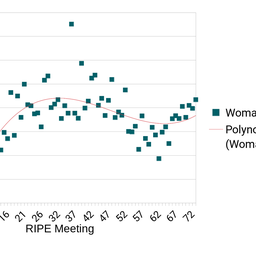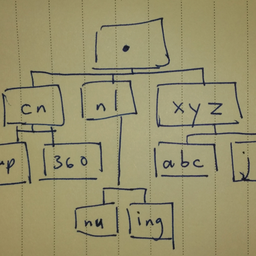The RIPE DNS working group will be holding online sessions every few weeks. We have already had the first session, a talk from Kim Davies at PTI/ICANN about some of the challenges of DNSSEC KSK management for the root zone. This session went very well, and we are looking forward to many more in the future.
Background
The chairs of the RIPE DNS working group were sad at the news that RIPE 80 would not be held in Berlin but instead would be held as a virtual meeting. However, we totally support both the government policies that required this and the decision of RIPE and the RIPE NCC to have the meeting virtually.
Since we cannot meet in person, we have tried to find good ways to let people interested in DNS come together and exchange knowledge and ideas. We think that long virtual meetings sitting in front of a screen are neither fun nor productive, so we want short sessions. We also do want the sessions to be interactive, because otherwise you might just as well watch archived videos on YouTube or some other site.
What we decided is to schedule a series of DNS working group online sessions every few weeks, at least until the next time we are able to meet in person. The RIPE NCC in their role as RIPE meeting organiser has helped us by providing a Zoom set-up for these sessions.
First Session: Keeping the root zone signed when standard plans won’t work
João Damas, in addition to being one of the DNS working group co-chairs, is one of the Trusted Community Representative (TCR) for the Internet community. So he was very aware of the upcoming problems with the root zone DNSSEC signing. He reached out to Kim Davies of PTI/ICANN, who graciously agreed to present the details of this issue along with details of the work being done not only for this problem but with other related aspects of the root zone DNSSEC.
We were not sure what to expect, but we ended up having almost 50 people on the Zoom session. The meeting went incredibly smoothly, with the technology working quite well. A few weeks of working remotely seems to have given everyone enough on-the-job training in such sessions that everyone muted properly, was able to manage chat and voice, and so on.
In addition to the excellent presentation by Kim, there were both questions and suggestions from attendees. This was exactly the kind of engagement that we were hoping for, making a real-time session worthwhile.
We also had a surprise when João executed part of his role in the emergency root management process during the session, placing his credentials as a TCR into a tamper-evident bag and sealing it up.
Future Sessions
Our success has made us hopeful that future DNS working group sessions will also be as interesting and productive – although Kim has set a high standard going forward. We have settled on one session every three weeks, looking like this:
| Date | Topics |
|---|---|
| 6 May 2020 | Effect of a global pandemic on DNS utilization, by Steve DeJong, Neustar COVID-19 influence on resolver traffic, by Peter van Dijk, PowerDNS and Pieter Lexis, PowerDNS |
| 27 May 2020 | Changes to .ORG Signing, by Joe Abley, PIR and Suzanne Woolf, PIR DNS and IPv6, by João Damas, APNIC and Geoff Huston, APNIC |
| 17 June 2020 | To be determined |
| 8 July 2020 | To be determined |
As you can see, we have time in our upcoming agenda for anything DNS related. We have quite a bit of flexibility online, so any topic of an hour or less is welcome. It can also be interactive within the limits of an online session, so if you want to show some real-time demos or live analysis this is possible, in ways that might be even easier to do online than at in-person RIPE meetings.
Also, there will be no DNS working group session at RIPE 80. As the RIPE meeting week will be shorter this year to accommodate its online format, we felt that hosting independent sessions outside of the meeting was the way to go. It allows us to cover more topics and to have more time to discuss and reflect on the content. And as everything is happening online, it doesn’t make a big difference for participants.
If we continue to have interest and people with things to discuss, we will continue with these virtual sessions going forward. If interest dies down or we run out of presenters, then we will either slow down or stop this format. We may also take some time off for summer, but maybe not. Usually Europe becomes very sleepy and relaxed during the summer holidays, but who can say what will happen this year?





Comments 0
The comments section is closed for articles published more than a year ago. If you'd like to inform us of any issues, please contact us.